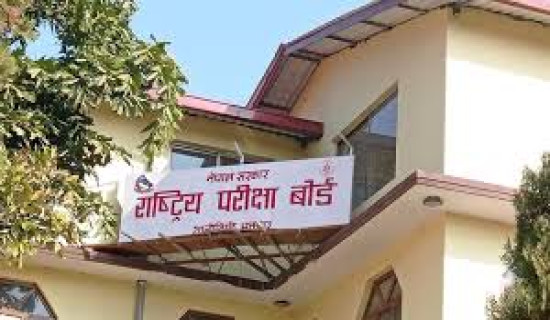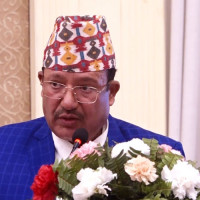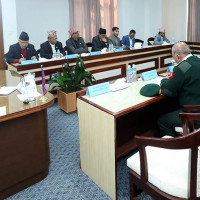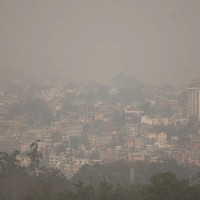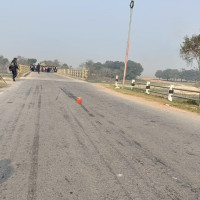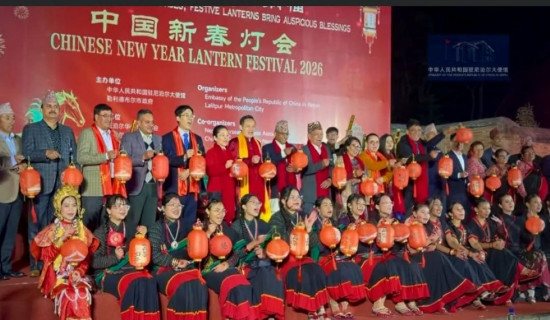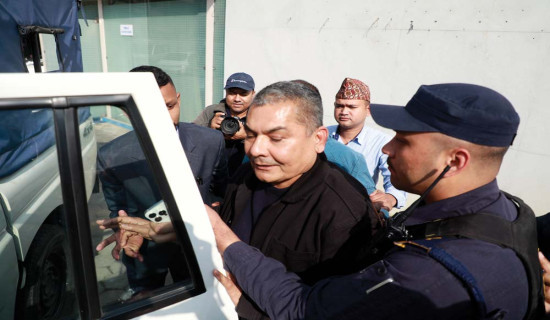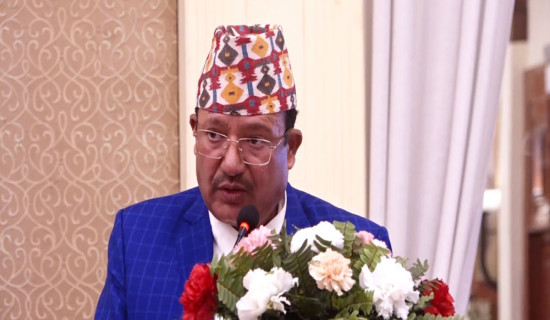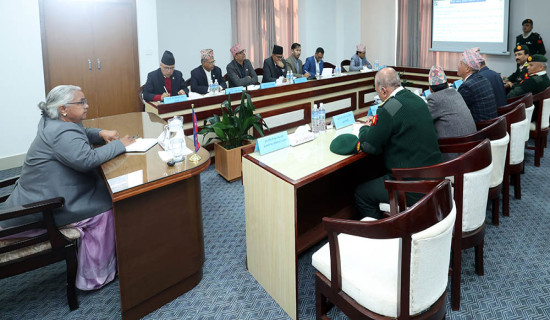- Wednesday, 18 February 2026
Polygamy, Child Rights and Family Value
After the restoration of democracy in Nepal in 1990, several laws were enacted to protect the rights of women and marginalised communities. Unfortunately, there have also been instances where retrogressive laws were proposed, threatening both democracy and citizens’ rights. The proposed amendment to Article 175 of the Criminal Code regarding polygamy is one such regressive move that must be avoided at all costs. Equally important is to question how such a proposal was drafted and advanced without prior discussion with all relevant stakeholders. A protest is being staged against the current proposed amendment both in the Parliament and on the streets.
Nepal’s constitution provides equal rights to all citizens, including the right to have children and to protect them under the law. However, the current debate on amending the polygamy law — on the pretext of protecting child rights and women’s rights — needs to be scrutinised carefully. The government argues that the law is not meant to legalise polygamy but to protect children born out of wedlock and the women who may have been deceived in such relationships.
Criminal offence
While child protection is important, the narrative that women are always naïve and in need of legal protection is problematic. If a married man cheats on his wife and maintains multiple relationships, granting legal provisions that allow children and women from such extramarital affairs to claim property rights is an encroachment upon the legal rights of the lawful spouse and her children. In such cases, the married wives are victims of a criminal offence caused by their husbands and the women who are having marital relationships with them. Therefore, the latter are criminals too and should be punished and not portrayed as “naïve damsels in distress” who need protection from the government by legalising polygamy.
Adults who choose to engage in extramarital relationships should bear full responsibility for the consequences, including the care and financial support of any children born from such relationships, without infringing on the rights of the legally wedded spouse and her family. Existing laws prohibiting polygamy already provide a mechanism to address such incidents and should be enforced rather than diluted. The Ministry of Law, Justice, and Parliamentary Affairs has drafted revisions to Article 175 of the Criminal Code, which fully banned polygamy when it came into effect on August 1, 2075 BS. The proposed amendment seeks to replace the term “married man” with “any married person,” making the law gender-neutral and applicable to women and LGBTQI individuals.
While this aspect is justified, the newly proposed sub-sections (5a) and (5b) raise serious concerns. Sub-section (5a) states that if a child is born from an extramarital relationship or the woman becomes pregnant, the marriage shall not be considered void solely on that basis, even if the person is punished for polygamy. Sub-section (5b) further states that if the spouse in the first marriage was not prevented from maintaining the marital relationship, or if the other party was unmarried, the new marriage shall still be considered valid, though the first spouse is entitled to mental compensation.
Both of these proposed clauses are contradictory to the Constitution of Nepal and the country’s existing legal stance against polygamy. While they retain punishment for polygamy, they stop short of automatically voiding second marriages if a child is born from such relationships. This undermines the dignity of the first wife, effectively labelling her a “victim” while simultaneously allowing her legally inherited property to benefit another woman and her children, born from her husband’s extramarital relationship. This is a direct attack on the sanctity of marriage and the security of the first family.
Polygamy was first regulated in Nepal when Jung Bahadur Rana enacted the National Code (Muluki Ain) in 1854, which prohibited polygamy for the general public but allowed it for the ruling elite. In 2017, the National Civil Code (Muluki Dewani Samhita) and National Criminal Code (Muluki Faujdari Samhita) replaced the 1963 National Code, which was rooted in Hindu law. These new laws strengthened the prohibition of polygamy, protected the rights of legally wedded spouses, and automatically voided any marriages out of wedlock. The government insists that the current amendment aims to protect children. However, in practice, if the amendment is passed, it will encourage malpractices and ridicule marriage as an institution. Instead of protecting families, it will legitimise unwed unions with children who are likely to face severe social and cultural stigmas.
Significant progress
Since the proposal is still in the draft stage, it should be immediately withdrawn. If marriage is to remain a sacred institution that protects families, legalising clauses that enable deception within a family setup is unacceptable. Extramarital relationships do occur, but giving them legal recognition undermines the very foundation of the family value system. Those who choose to have children outside of marriage should bear full responsibility — financially and socially — without infringing upon the property and rights of the legal spouse and her children. If a person wishes to start a new family, the proper course is divorce, followed by a fair division of property. The same principle should apply equally to women.
Nepal has made significant progress in advancing women’s rights and promoting equality in family law. Diluting polygamy laws under the guise of child protection is not only regressive but also unjust to the families that the law is meant to protect. Lawmakers must uphold the sanctity of marriage and prioritise policies that safeguard children, respect family values, and ensure gender justice.
(Namrata Sharma is a senior journalist and women’s rights advocate. She can be reached at namrata1964@yahoo.com or on X @NamrataSharmaP)



